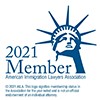All such applicants must be the beneficiary of an approved I-360, Petition for Special Immigrant, except overseas employees of the U.S. Government who must use Form DS-1884. Certain spouses and children may accompany or follow-to-join the principal special immigrant. Different types of special immigrants provided for under immigrant law are listed below:
1) Broadcaster in the U.S. employed by the International Broadcasting Bureau of the Broadcasting Board of Governors or a grantee of such organization;
2) Minister of Religion;
3) Certain Employees or Former Employees of the U.S. Government Abroad;
4) Employee of the Mission in Hong Kong;
5) Certain Former Employees of the Panama Canal Company or Canal Zone Government;
6) Certain Former Employees of the U.S. Government in the Panama Canal Zone;
7) Certain Former Employees of the Panama Canal Company or Canal Zone Government on April 1, 1979;
8) Interpreters and translators of Iraqi or Afghan nationality who have worked directly with the United States armed forces or under Chief of Mission authority as a translator or interpreter for a period of at least 12 months and meet requirements. This classification has an annual numeric limitation of 500 visas through FY 08.
9) Certain Foreign Medical Graduates (Adjustments Only);
10) Certain Retired International Organization employees;
11) Certain Spouses of a deceased International Organization Employee;
12) Juvenile Court Dependent (no family member derivatives);
13) Alien Recruited Outside of the United States Who Has Served or is Enlisted to Serve in the U.S. Armed Forces;
14) Certain retired NATO-6 civilians;
15) Certain surviving spouses of deceased NATO-6 civilian employees;
16) Alien beneficiary of a petition or labor certification application filed prior to Sept. 11, 2001, if the petition or application was rendered void due to a terrorist act of Sept. 11, 2001;
17) Certain Religious Workers.





